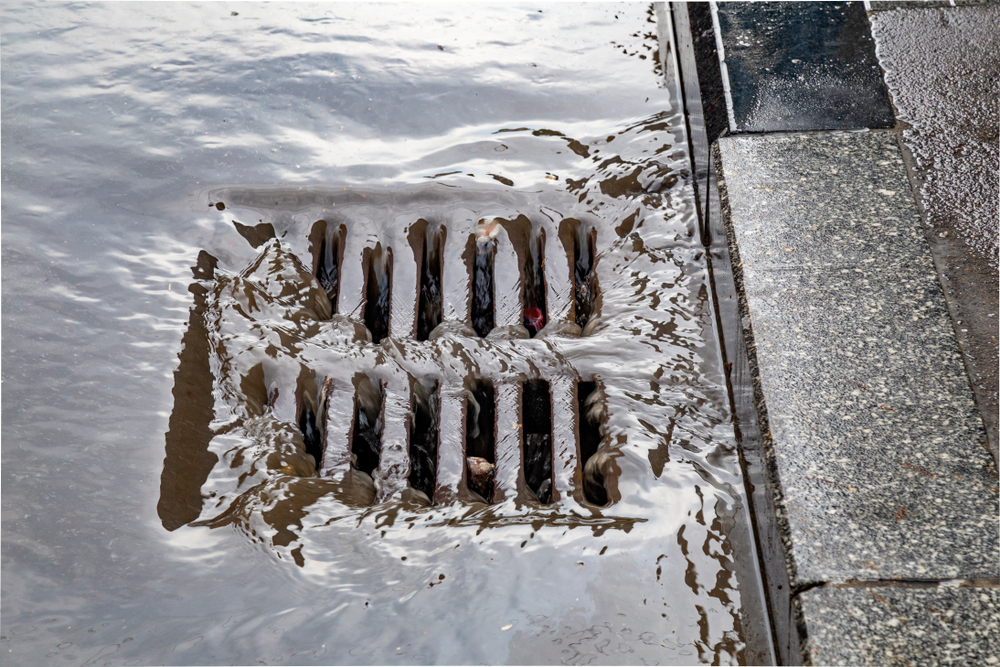Who is Responsible for Storm Drains on my Property?
It is often difficult for property owners to know which drains and sewers on their property they are responsible for, and which they are not. Most properties are served by two different types of drains, and because the UK has a public sewer system, maintenance responsibilities for these systems are divided between water companies and property owners.
One type of drain is the foul water drain, which carries household water to treatment facilities where it can be cleaned and processed before it re-enters the environment. Most homeowners are aware that they are responsible for the parts of this system that serve their property.
The other type of drain is the storm drain (or surface water drain), which collects rain and groundwater and releases it into streams or rivers. For the most part, these drains sit along the sides of roads or on other public land, but you may be unsure where responsibility lies if a public sewer lies within your property boundary.
Here, the drainage experts at Lanes Group will explain the key differences between these two types of drains, which of the drains on your property you are responsible for, and what you should do if a blockage or other problem arises.

Which of the drains inside my property boundary am I responsible for?
The simple answer to this question is that you are only ever responsible for private drains (or foul water drains) within the boundaries of your property. Your local water and sewerage company is responsible for all of the drains and sewers that collect surface water in your area, even in cases where a storm drain sits within the property boundary of a private residence.
As such, you should not take any action to try to fix a problem with a storm drain if one arises; in fact, you can face serious consequences if you do. Instead, contact your local water company and inform them of the issue, so that they can arrange for repairs.
It is important to note that responsibility for maintaining private sewers and lateral drains that connect to the public sewer system used to fall upon the property owner, but this is no longer the case. These assets were transferred into public ownership in 2011, and as of 2023, the only type of private sewer that property owners must maintain and repair themselves is a septic tank.
It might take your water company longer to fix a blocked drain than it would to address the problem yourself. Even so, it is vital that you do not take matters into your own hands. You can face legal and financial penalties for trying to repair a broken public drain or blocked sewer system without the authorisation of the relevant local authority. In most cases, drainage companies will refuse to carry out repair work without proof of this authorisation, meaning that the only way to respond is to inform your local water company and have them do it – even in situations where flooding is causing damage to your property.
In some cases, it may be ambiguous whether or not a drainage issue is your problem to deal with. Because private drains generally connect to public sewers that are the responsibility of the local authority or water company, the location of a blockage, leak or other problem within the drainage system will determine who is responsible. If the problem seems to originate with your household drains – for example, if they are emitting a foul odour, or water is not draining away properly from the sink – contact a drainage professional for advice. They will be able to identify the source of the issue and advise you on the next steps towards resolving it.
How can I fix problems with private drains?
When a problem arises with a foul water drain, responsibility for fixing the problem lies with the property owner. If you are renting (especially if the property is a commercial premises rather than a private residence), you should check the provisions of your contract, as these might assign responsibility to someone other than the owner.
If you own your home and the problem is with a private drain, you should contact an expert drainage contractor to help you. The team at Lanes Group will be able to diagnose the problem, determine where within your pipes the issue is located, and identify whether or not it is your responsibility to address it in cases where this is ambiguous. We can also act quickly to remove blockages, repair pipes, and fix other domestic drainage issues that commonly arise.
The best approach is to maintain your drains effectively, as this will reduce the risk of problems arising. For example, refrain from putting fat, oil, grease, food scraps or any products that contain plastic (like wet wipes, condoms and sanitary products) into your drains. Take precautions to insulate exposed pipes ahead of bouts of cold weather, and if you are concerned about the condition of your drains, commission a CCTV drain survey. This can help to highlight any cracks or vulnerabilities in drain pipes, and enable you to fix them before these defects get worse.
You can also carry out basic maintenance on any storm drains inside your property boundaries without falling afoul of the law. If storm drains are at risk of becoming clogged by fallen leaves, for example, you should clear these away to avoid the possibility of flooding on your property.
If you have a domestic drain problem that needs investigating or resolving, contact the experts at Lanes Group. Our extensive experience in resolving drainage problems of all sizes means that we can diagnose and fix a variety of issues quickly, minimising any disruption to your life. Call us 24/7 on 0800 526 488, or use the enquiry form on this page to request a call back at your convenience.







